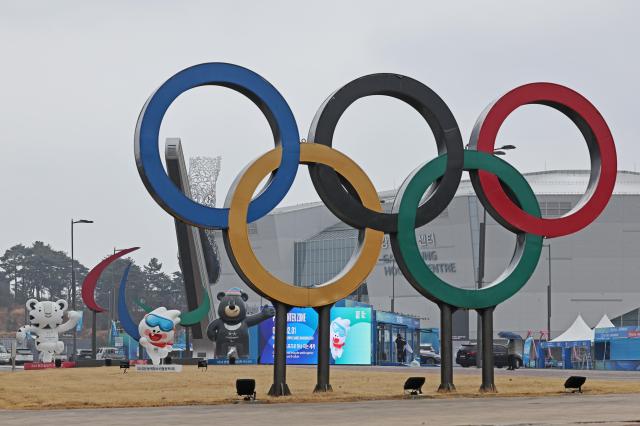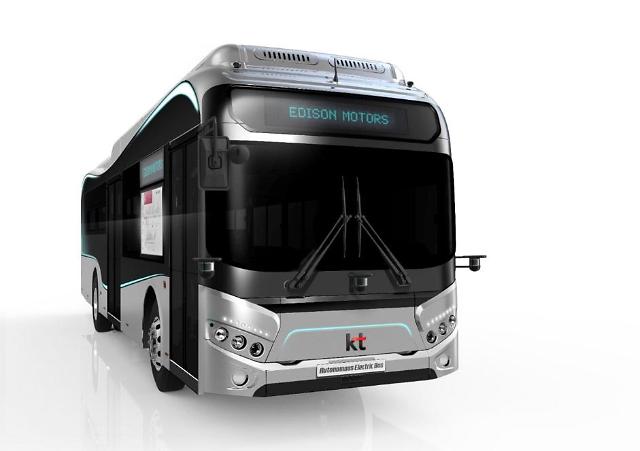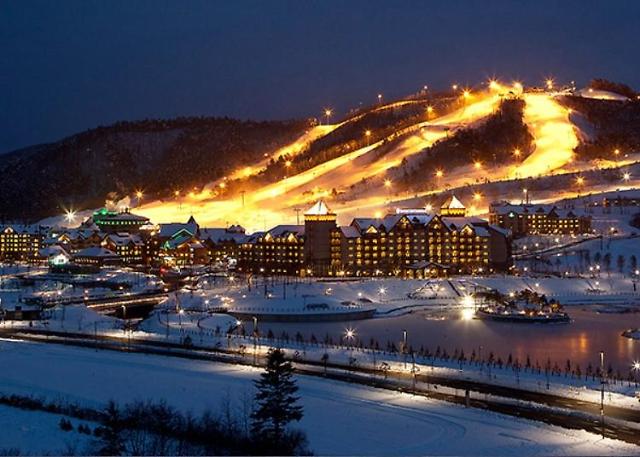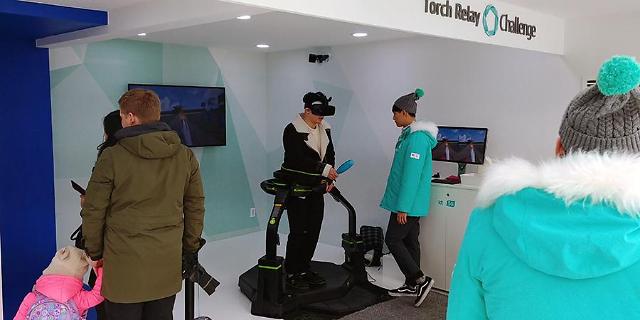
[Photograph by Park Sae-jin]
SEOUL, Feb. 15 (Aju News) -- Inside a glacial green-colored makeshift structure on a public plaza at the heart of Seoul, tens of people patiently stand in the queue, waiting for a glimpse at how their daily life can be changed in the future if a next-generation communication network is commercialized.
Some lucky visitors are being immersed in the virtual world inside a bobsledder, or wear virtual reality (VR) headsets to experience a thrilling ski jump, using the super-fast fifth generation (5G) network at the live experience center run by KT, a leading South Korean telecom company, which provides services for this year's Winter Olympics in the eastern ski resort of Pyeongchang.
"The live center was created to give visitors ideas on how our 5G technology is being used," Chung Woo-hyun, KT's senior public manager, told Aju News, adding KT has linked VR headsets and augmented reality (AR) machines to its 5G network inside the "KT LIVE SUITE".
In Pyeongchang, KT is showcasing various 5G-based services for the first time in the world that have wowed many foreign athletes and visitors, and its center in Seoul provides a rare opportunity for those who cannot go to the Olympic venues to get a glimpse of future technology.

[Photograph by Park Sae-jin]
Competition is getting fierce among tech firms to commercialize 5G services. Because of its fast data-processing speed, the 5G network is suitable for transferring and analyzing a vast amount of data. According to Ovum, a global marketing research firm, the number of 5G users in the world will reach some 389 million in 2022.
KT is confident of becoming the frontrunner in commercializing and standardizing 5G technologies.
"I heard 5G is about ten times faster than LTE. I think it would be great when the technology is commercialized. I envy you South Koreans," Mike Harrison, a 38-year-old American visitor, said, taking a ride on a VR bobsledder machine at KT's center in Seoul.
The optimal speed of KT's 5G network is at least ten times faster than 4G long-term-evolution (LTE) networks, and it meets requirements for the transfer of ultra-high-definition video images and the operation of connected cars.
KT runs a 5G-connected showcase village near the Olympic venue to show how 5G technologies change the future life. At its center, a two-story 5G cafe provides information using a combination of holograms, AR and MR, a hybrid of AR and VR as well as images captured by autonomous drones.
A 5G network was established on an expressway leading to Pyeongchang to demonstrate KT's new technology to Olympic visitors. Real-time VR footages of the Olympic games are being provided in full high definition.
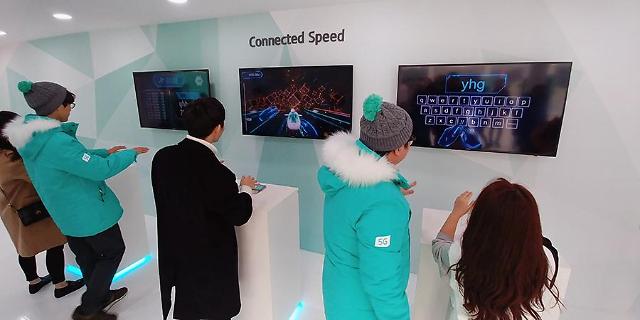
[Photograph by Park Sae-jin]
The 5G network is a vital element of technologies for connected and autonomous vehicles (CAVs). Once it is set up across South Korea, the CAV industry will be the greatest beneficiary. Connected cars require a fast network to send and receive on-road data including video feeds and radar information to and from servers. KT will use its 5G technology in materializing the urban operation of autonomous buses.
VR, AR and connected cars are just one aspect of how the 5G network will change everyday life. Before putting its 5G service into commercial operation, KT is testing its technology under harsh weather conditions in Pyeongchang.
"Pyeongchang is a perfect place to simulate our 5G network as we can gather huge data, information and know-how which are vital for commercialization," Chung said, adding the experience of operating a 5G network will give KT the upper hand in competition with rivals.
Chung said Pyeongchang would help his company reduce the cost of operating a 5G network and maintain a high level of service.


